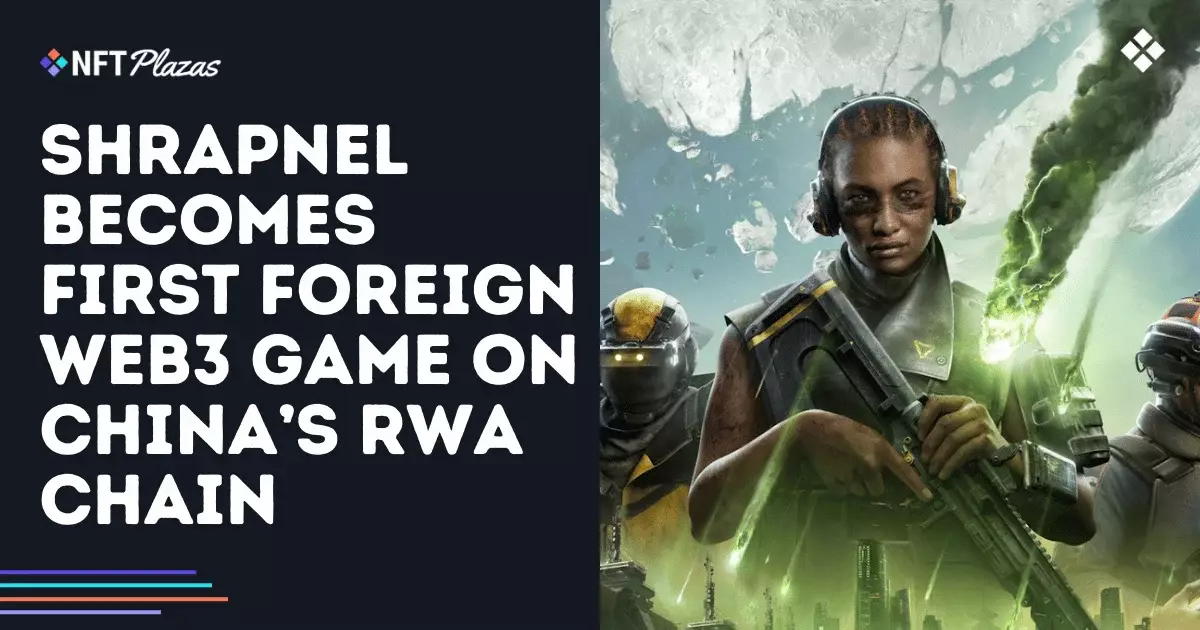In a significant turning point for the gaming and blockchain industries, US-developed Shrapnel has become the first foreign blockchain game approved to operate under China’s RWA Copyright Chain. This milestone not only allows Shrapnel to distribute tokenized in-game items legally, but it also unlocks the gates to one of the most lucrative gaming markets on the planet—valued at over $40 billion. The implications of this approval extend far beyond mere profits; it suggests a shift in China’s often rigid stance on foreign digital ventures, especially those involving blockchain technology.
A Localized Approach to Global Ambitions
What makes this development particularly fascinating is Shrapnel’s strategy for adaptation. The game recognizes the need for localization, and as such, it will not simply replicate the global version but rather create a distinct Chinese edition. This plan includes a dedicated game launcher specifically tailored for Chinese users and a marketplace compliant with national guidelines. In a landscape where cultural nuances can make or break a product, this localized approach demonstrates foresight and respect for local customs, which is crucial for success in any foreign market.
Legal Recognition: A Double-Edged Sword
The approval granted to Shrapnel involves issuing and tracking in-game assets through a state-sanctioned blockchain system. While this legal recognition of digital goods such as cosmetics and equipment is a massive advantage for the gaming community, it also raises questions about the extent of government surveillance and control. Players must consider whether the benefits of operating under this regulatory framework outweigh the potential for state intervention in their digital engagements. Balancing compliance with personal freedom will be an ongoing discussion as this sector evolves.
Partnerships that Matter: The Role of Lingjing Game Labs
Shrapnel’s alliance with Lingjing Game Labs, a subsidiary of the state-run People’s Daily, underlines the importance of strategic partnerships in penetrating the Chinese market. This collaboration will not only ensure compliance but will also support various operational aspects, including asset minting and trading systems. Such backing from the media apparatus of the Chinese Communist Party reinforces the perception that this project is more than just a game—it represents a model for how foreign entities can navigate the complexities of China’s restrictive digital environment.
Cross-Border Collaborations: A Cautious Yet Promising Future
Shrapnel’s approval is indicative of a delicate balancing act in China’s digital economy. By working within the boundaries of the strict regulatory landscape, the game sets a precedent for how future foreign digital products may find their way into the market. However, while this could suggest increased openness, it does not necessarily signal a broader liberalization of policies concerning blockchain technologies. It’s a cautious step forward, one that must be carefully monitored for its long-term implications on cross-border collaborations.
Navigating these waters will require flexibility and a keen understanding of both market opportunities and regulatory landscapes. As the dynamics of digital economies continue to evolve, Shrapnel’s entry into China may serve as a blueprint—or a cautionary tale—for other foreign ventures aiming for success in one of the world’s most complex markets.


Leave a Reply